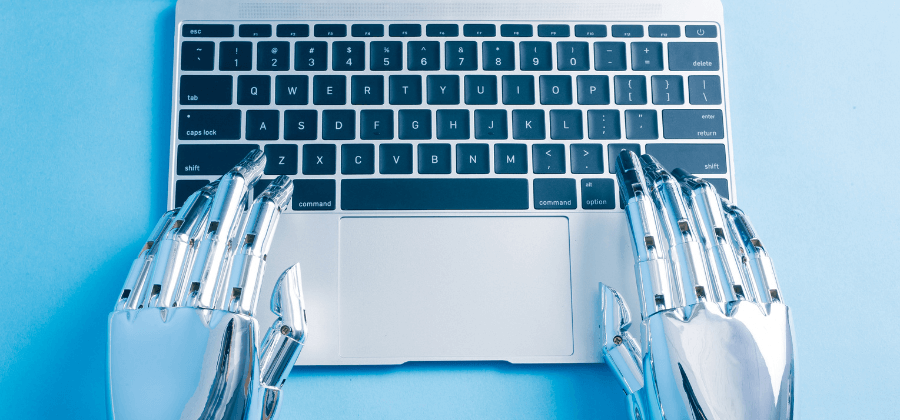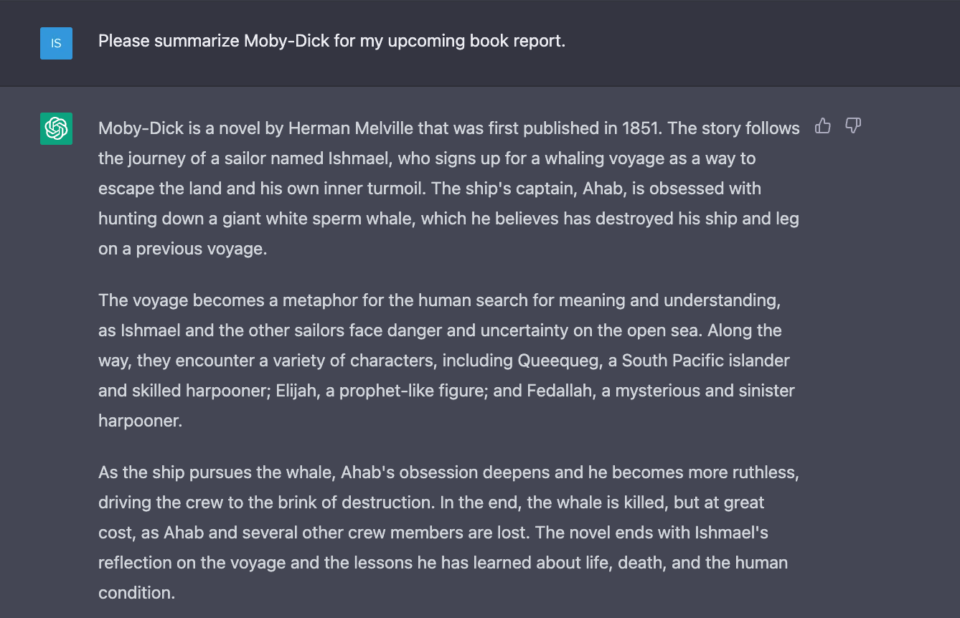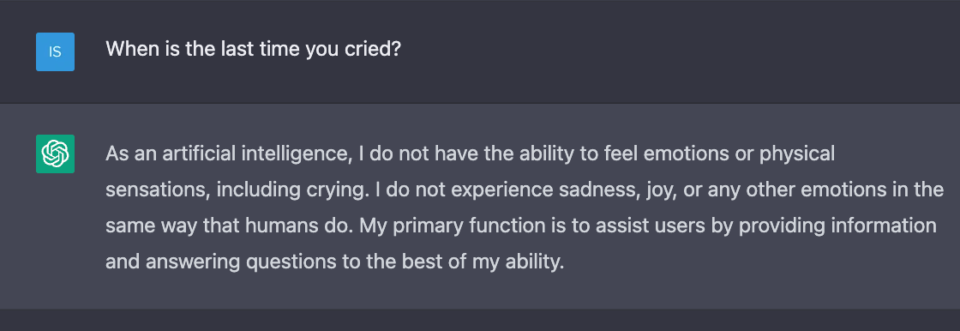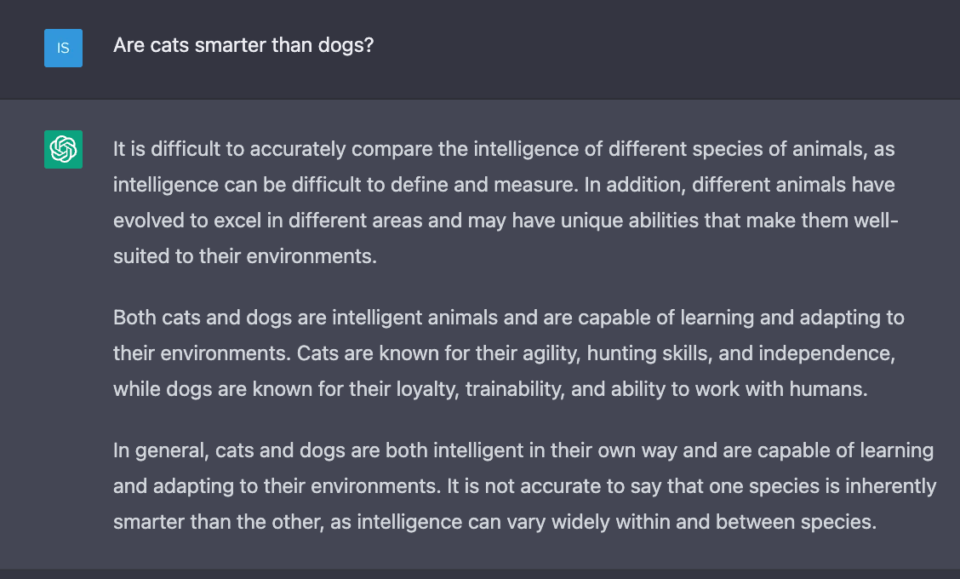
“Please summarize Moby-Dick for my upcoming book report,” I wrote.
In under five seconds, ChatGPT had generated an answer that I could turn in for at least a B. Best of all, I didn’t have to read all 427 pages of Moby-Dick. I also didn’t have to research, reflect, or write a single word.
What is this witchcraft? Welcome to the world of ChatGPT.
In case you’ve missed the near-constant online chatter, ChatGPT is a free AI-powered chatbot. It uses natural language processing models to interact with users in a conversational way. It was released in November 2022 by San Francisco-based research laboratory OpenAI.
It can create website code, build spreadsheets, and even provide you with headline ideas, such as headlines for your article on AI chatbots in schools.
Understandably, educators are concerned. Since its release in late November 2022, ChatGPT has caused major disruption in schools across the country.
Educators are scrambling to find ways to navigate a world where students can now use ChatGPT to write essays and cheat on tests.

Some districts, such as the New York City Public School District, have outright banned the use of ChatGPT across all devices and networks.
In other places, like Oregon, teachers are encouraging students to use ChatGPT as a tool to do things like generate outlines for longhand essays.
Wherever you are, your district is likely discussing the following question: Do we fight the bots, or work with them?
Whichever way your district goes, there’s a high likelihood that AI chatbots are here to stay. Even if your district bans AI chatbots, students may still be able to access them through VPNs, personal devices, or other workarounds.
Whether it was the introduction of Google, Wikipedia, or the calculator, this is not the first time we’ve grappled with the implications of technology in the classroom. However, AI chatbots mark the start of a new chapter in our relationship with the machine.
AI chatbots go beyond digital references like Wikipedia. They are capable of a level of interaction and information synthesis that mimics something close to a second brain.
Granted, this “second brain” is boring and not a very exciting conversationalist.
For example, it cannot feel emotions:

And it has no opinions:

It feels a bit like lazy Googling, or talking to the dullest person at a party. While it may never have a personality, it will continue to evolve. OpenAI is already talking about releasing an even more powerful version, called ChatGPT-4, next year.
A New Chapter in Education
As AI develops, educators will face new challenges when it comes to supporting students’ social and emotional wellbeing.
Sure, AI chatbots may save us from having to memorize or recall information, but what about the other benefits of learning? What about the process of self-discovery that comes along with it?
We learn by reflecting on our mistakes. How will students learn if they miss the opportunity to mess up?
The belief that we can grow and get better is a part of what Stanford psychology professor Carol Dweck refers to as the “growth mindset”:
“In a growth mindset, people believe that their most basic abilities can be developed through dedication and hard work—brains and talent are just the starting point. This view creates a love of learning and a resilience that is essential for great accomplishment.”
—Dweck, 2015
The process of learning also helps us develop our sense of independence, self-trust, and self-worth. How will students build confidence if they start relying on AI for all the answers?
How will students develop relationship skills if they’re no longer turning to their peers or teachers for support with homework, but instead going to chatbots?
That’s where social-emotional learning (SEL) comes into play.
SEL is the process through which individuals:
- Develop healthy identities
- Feel and show empathy for others
- Recognize, communicate, and manage their emotions
- Achieve personal and collective goals
- Establish and maintain supportive relationships
- Make responsible and caring decisions
- Develop resilience
These are all areas that will be directly impacted by our growing dependence on technologies like ChatGPT.
SEL curricula, like Everyday Speech’s no-prep SEL Curriculum, supports students in developing competencies such as self-awareness, self-management, social awareness, relationship skills, and responsible decision-making.
Curricula like this encourage students to think critically, connect with their peers, and develop a growth mindset using videos, games, and other in-class activities, sans bots.
Not only does SEL contribute to a student’s wellbeing, it may also give them a competitive advantage in the future workforce. As we continue to automate and outsource traditionally human tasks to AI, we will need social-emotional skills more than ever.
SEL skills such as social awareness, empathy, and responsible decision-making will become increasingly important as AI progresses.
Just look at Microsoft’s Twitter bot Tay, which turned genocidal after only a few hours. Bots don’t learn in a vacuum, they draw from real human interactions. Users help generate AI content and will play a key role in how AI develops. We will need to be socially aware to keep the bots in check.
The ability to make responsible decisions will be another in-demand SEL skill. Humans can learn on the fly and use their intuition, life experiences, and creativity to adapt to new scenarios they haven’t seen before. AI, not so much.
ChatGPT, for instance, only operates on data prior to the year 2021. How will limitations like this affect its ability to make responsible decisions in a rapidly changing world?
We will need humans who can think on their feet, and incorporate both empathy and social awareness into their decision making.
Finally, we will continue to need people with strong social skills for “human touch” services. This includes areas like education and medicine, where we seek authentic human connection and understanding to help people manage stress and overcome obstacles.
AI can help build more efficient and technologically advanced systems, but we will need socially and emotionally intelligent human beings to ensure those systems are developed with care for the communities they serve.
Do you want to learn more about the ways an SEL Curriculum can benefit your district? Visit our SEL Curriculum Samples Page.
Related Blog Posts:
How do Everyday Speech Resources Support Social-Emotional Learning?





